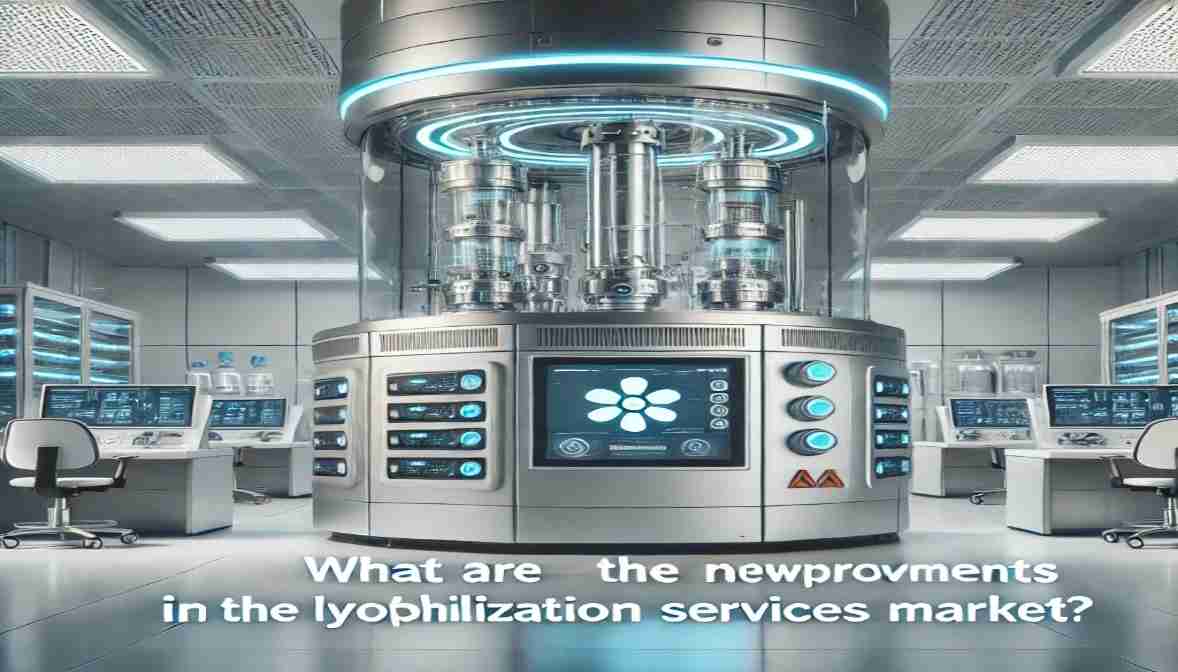What Are the New Improvements in the Lyophilization Services Market?
The lyophilization (freeze-drying) services market is witnessing significant advancements as industries aim to enhance efficiency, precision, and sustainability. These innovations cater to various sectors, including pharmaceuticals, biotechnology, food preservation, and cosmetics, offering solutions to meet modern demands. Below, we explore the latest developments shaping the lyophilization services market and their implications.
1. Enhanced Process Automation
Advancements in automation technologies have revolutionized lyophilization. Modern lyophilizers are equipped with automated controls for temperature, vacuum, and shelf positioning, reducing manual intervention and minimizing errors. Features like process performance qualification (learn more) ensure consistency and efficiency during production.
2. Real-Time Monitoring and Diagnostics
Cutting-edge lyophilization equipment now includes sensors and IoT integration for real-time monitoring. This ensures precise control over critical parameters such as temperature, pressure, and sublimation rates. Tools like vacuum performance verification (Learn more) and temperature control systems (Learn more) provide actionable insights, improving process outcomes.
3. Energy-Efficient Systems
Energy efficiency is a key focus in the lyophilization services market. Advanced systems, such as those optimized for shelf heating and cooling rate verification (Learn more), reduce energy consumption while maintaining high performance. These innovations align with global sustainability goals.
4. Improved Equipment Reliability
Frequent failures in components like compressors and pumps can disrupt the lyophilization process. Manufacturers are now designing robust systems with improved durability. For instance, addressing refrigerating compressor failures (Learn more) and valve issues (Learn more) has significantly enhanced system reliability.
5. Integration of Advanced Analytics
AI and machine learning are now being integrated into lyophilization processes. These technologies predict potential failures, optimize cycles, and ensure seamless operation. This is particularly important for lyophilization validation (Learn more), helping manufacturers meet stringent quality standards.
6. Customization and Flexibility
Modern lyophilization services now offer tailored solutions for diverse industries. From pharmaceutical-grade systems to food-specific designs, manufacturers can choose equipment and processes suited to their needs. Solutions like lyophilizer cleaning validation (Learn more) and surface roughness checks (Learn more) ensure customized and high-quality outcomes.
7. Regulatory Compliance
Adhering to global regulations is crucial in the lyophilization industry. Innovations in software and equipment now support compliance with cGMP and FDA guidelines. For example, following cGMP guidelines for lyophilized products (Learn more) ensures safety and efficacy in pharmaceutical applications.
Conclusion
The lyophilization services market is evolving rapidly, driven by advancements in automation, energy efficiency, equipment reliability, and regulatory compliance. With real-time monitoring, AI integration, and tailored solutions, industries can achieve higher efficiency and quality in their freeze-drying processes. To stay ahead in this competitive landscape, leveraging these innovations is essential.
